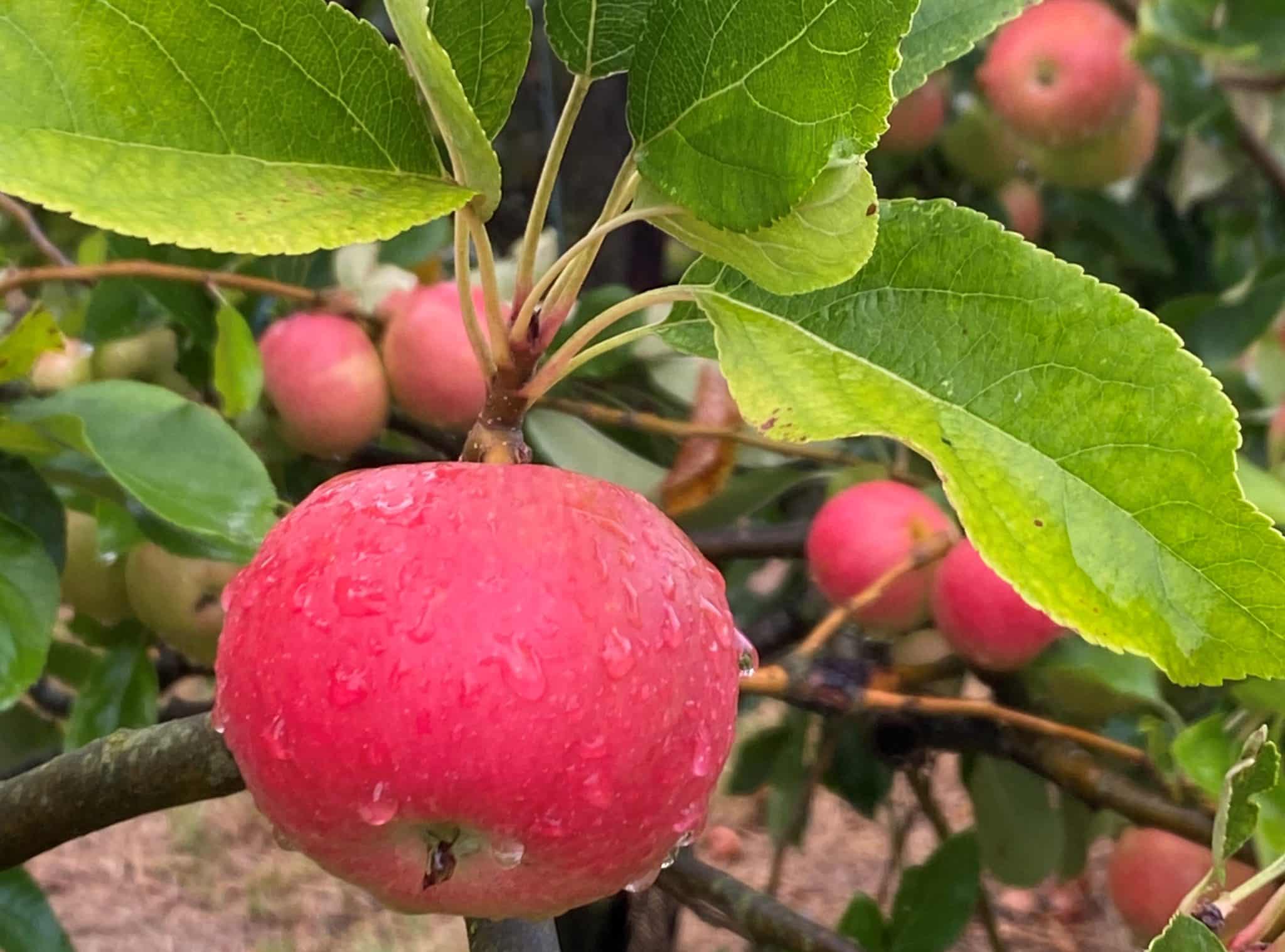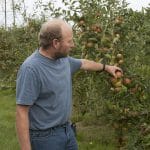The season started quite well: winter wasn’t too wet (this can cause root death), and we had only one major frost, with temperatures dropping to -4 degrees. Luckily, that was at a stage when it didn’t do too much perceptible damage – unlike last year, when April gave us 27 frosts! Then, as we headed into summer, it didn’t rain at all. And it got hotter and hotter. We have weather stations in our orchards, and the highest recorded temperature was 39.2 degrees, a record for the UK. Some days, the early afternoon sun literally cooked the apples on the trees, causing ‘sun scorch’, which looks like a big brown blotch on the skin.
Those scorched apples subsequently either fell off the trees, or had to be discarded at picking time. In the end, we lost about 10-15 per cent of the crop – we feared much worse, but when the scorched apples fell off, the remaining fruit sized up as a result. The fruits on pear trees were unaffected by the heat, but some branches got burned and lost their leaves.
Very strangely, early season apples such as Discovery and Scrumptious were hardly affected at all. These varieties have much less dense cell structures, so they’re softer, and we think this helped in some way. Then, finally, it rained, and we could stop dancing! The rain came too late to improve the size of the early varieties, but it reduced the stress on the trees, and made a substantial difference to the crop overall, with later fruits growing bigger. Other than that, our main concern is energy prices. Without specific support from the government, or further caps, it would have been impossible to cover the cost of refrigerated storage for our fruit, so it’s good to see that has now been offered.
So where are we now? Pear and apple yields are as good as we could have expected. Their flavours will be sweet and intense due to the sunshine. Colour will not be at its best in the early fruit, as vibrant skins are triggered by the difference between day and night temperatures – but in the last week, we’ve started to see cooler, more autumnal temperatures at night, so the fruits’ colour will start to really come through too. All in all, we’re breathing a sigh of relief, as other crops have fared much worse.
Is this weather the new normal? We hope not, but if so, then we will adapt – we just don’t know how yet.










0 Comments